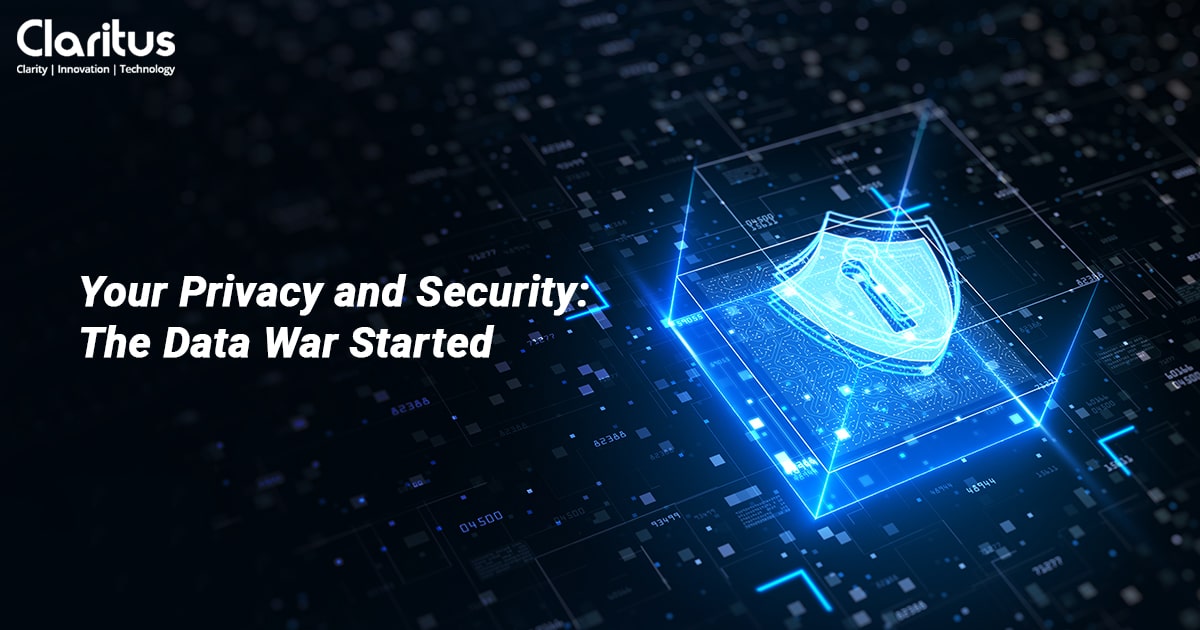Your Privacy and Security: The Data War Started
Data War
There seems to be a massive shift in the digital advertising scenario which should not be underestimated. The App Tracking Transparency introduced by Apple has posed problems and alarmed many organizations more severely than even the supply chain crisis. Ad conglomerates like Facebook and Google are here to stay, notwithstanding the body blow taken on their bastion and forte, the advertising. This has a cascading effect on most of the marketing strategies which get broader and expanded.
So the individual operations and courses of action need to be more platform centric and the inventory of channels should be more sizable and all-embracing. Since brand safety is increasing in importance, the trust aspect should evolve into the cornerstone of strategy rather than being a simple messaging action. Companies by and large must make sure and confirm that their first party data sources, for instance, loyalty programmes and newsletters garner decent data from the populace and followership ethically.
For users, the demise of cookies means winning the battle and not the war. The exit of cookies does not make a major platform a smaller storehouse of data in any way than it was in the past. Lure of lucre will always drive conglomerates towards first party data, having privacy breaching potential. At the same time it’s not easy for the populace to evade providing the data. In a predominantly digital world, data have and will continue to have immense values. Therefore there appears to be no foreseeable end to the data war. It has just evolved into a cold one.
To win the war
1. A brand new digital social contract is necessary. Sir Tim Berners Lee, who developed the internet and whose “contract for the Web Project” launched in 2018, the likes of which spell out the functions of businesses, governments and users with regard to utilizing web and data must be scalable and expandable. There should be a framework which is beneficial and good for everyone and offers the trust which the society looks forward to.
2. Data literacy is of paramount importance. Data age requires a data literate populace so that the users are adept at reading, understanding, questioning and communicating with data. We must possess the dexterity to delve into the salvo of data and information that are thrown at us day in, day out. Deciphering and confronting them will help us to derive informed choices and sound decisions about anything that affects or impacts us.
3. Another aspect to ensure data privacy and security is to have a strong, powerful and unrestricted platform. It should control, manipulate and run data, content and users together seamlessly. The environment must be connected and distributed while being ethical, authenticated and transparent.
Some guidelines for privacy and security
A. Encryption renders data unreadable to any unauthorized individual who does not have the right key or password. In this process you can protect your sensitive data from falling into wrong hands.
B. Control access to data. Manage access of all kinds, including digital and physical. Store devices and sensitive documents in locked areas to guard against theft and misuse.
C. During data acquisition, be mindful and cognizant of privacy and security by acquiring only the right amount of data. One of the best possible methods to reduce data security risk is to lower the procurement of sensitive data to begin with.
D. Redundant data should be disposed off appropriately. Sensitive and delicate data like social security numbers must properly deleted so that they cannot be retrieved and used maliciously.
E. Be into proper computer management, which encompasses mandatory security practices. Adhere to proper cybersecurity hygiene. This means that you have to routinely patch software, use anti-virus software, use device passcodes, use whole-disk encryption, suspend inactive sessions and enable firewalls.
These are some of the ways by which we, as citizens, consumers and employees can keep on reaping the advantages of a data driven community without jeopardizing democracy, autonomy and finally data ownership.

